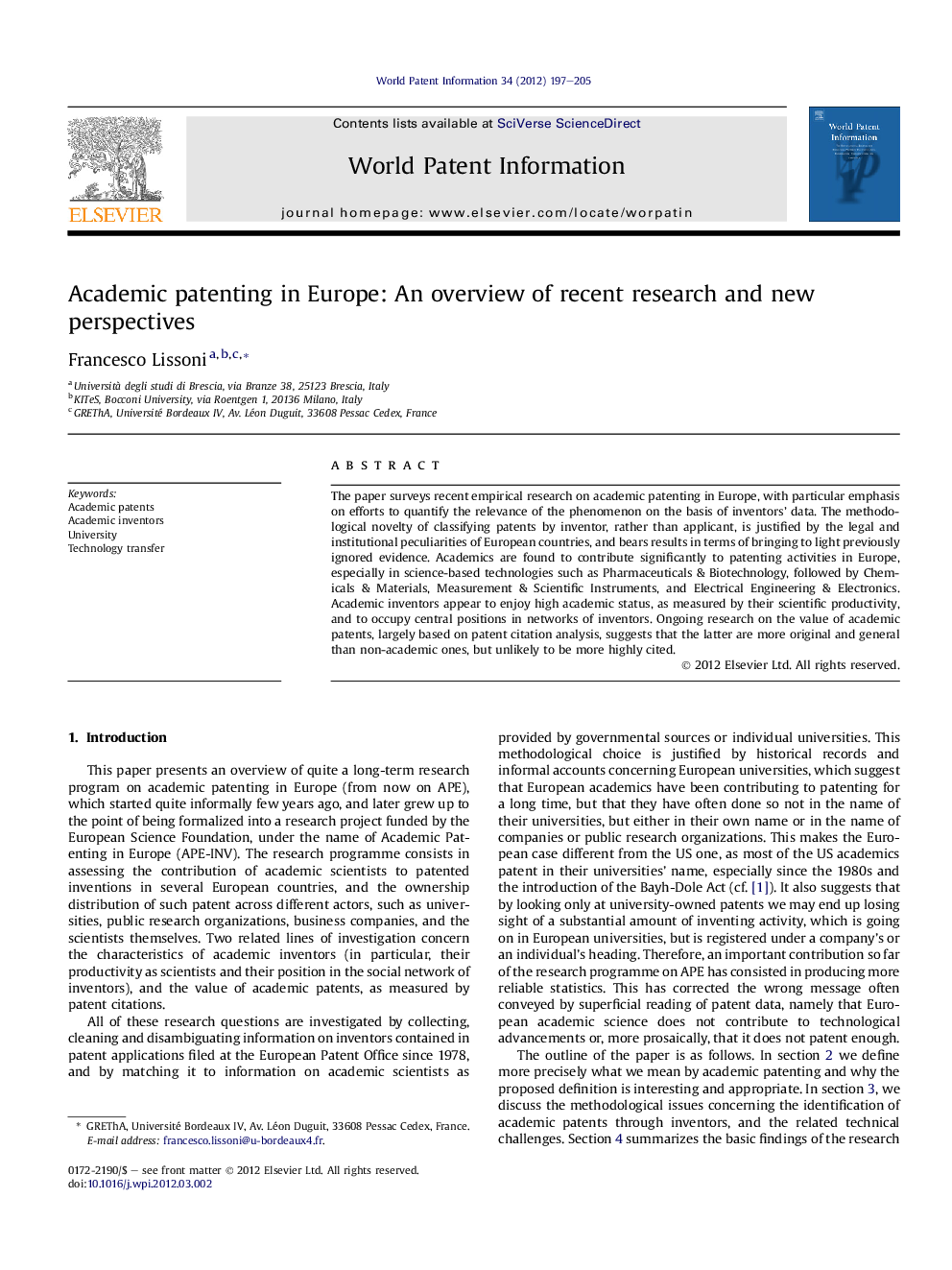| Article ID | Journal | Published Year | Pages | File Type |
|---|---|---|---|---|
| 38114 | World Patent Information | 2012 | 9 Pages |
The paper surveys recent empirical research on academic patenting in Europe, with particular emphasis on efforts to quantify the relevance of the phenomenon on the basis of inventors’ data. The methodological novelty of classifying patents by inventor, rather than applicant, is justified by the legal and institutional peculiarities of European countries, and bears results in terms of bringing to light previously ignored evidence. Academics are found to contribute significantly to patenting activities in Europe, especially in science-based technologies such as Pharmaceuticals & Biotechnology, followed by Chemicals & Materials, Measurement & Scientific Instruments, and Electrical Engineering & Electronics. Academic inventors appear to enjoy high academic status, as measured by their scientific productivity, and to occupy central positions in networks of inventors. Ongoing research on the value of academic patents, largely based on patent citation analysis, suggests that the latter are more original and general than non-academic ones, but unlikely to be more highly cited.
► Review and new research on academic patenting in Europe. ► Greater emphasis placed on inventors, rather than applicants. ► Results suggest that academic inventing has greater productivity than previously thought. ► Academic patents are more general and original, but are unlikely to be more highly cited.
